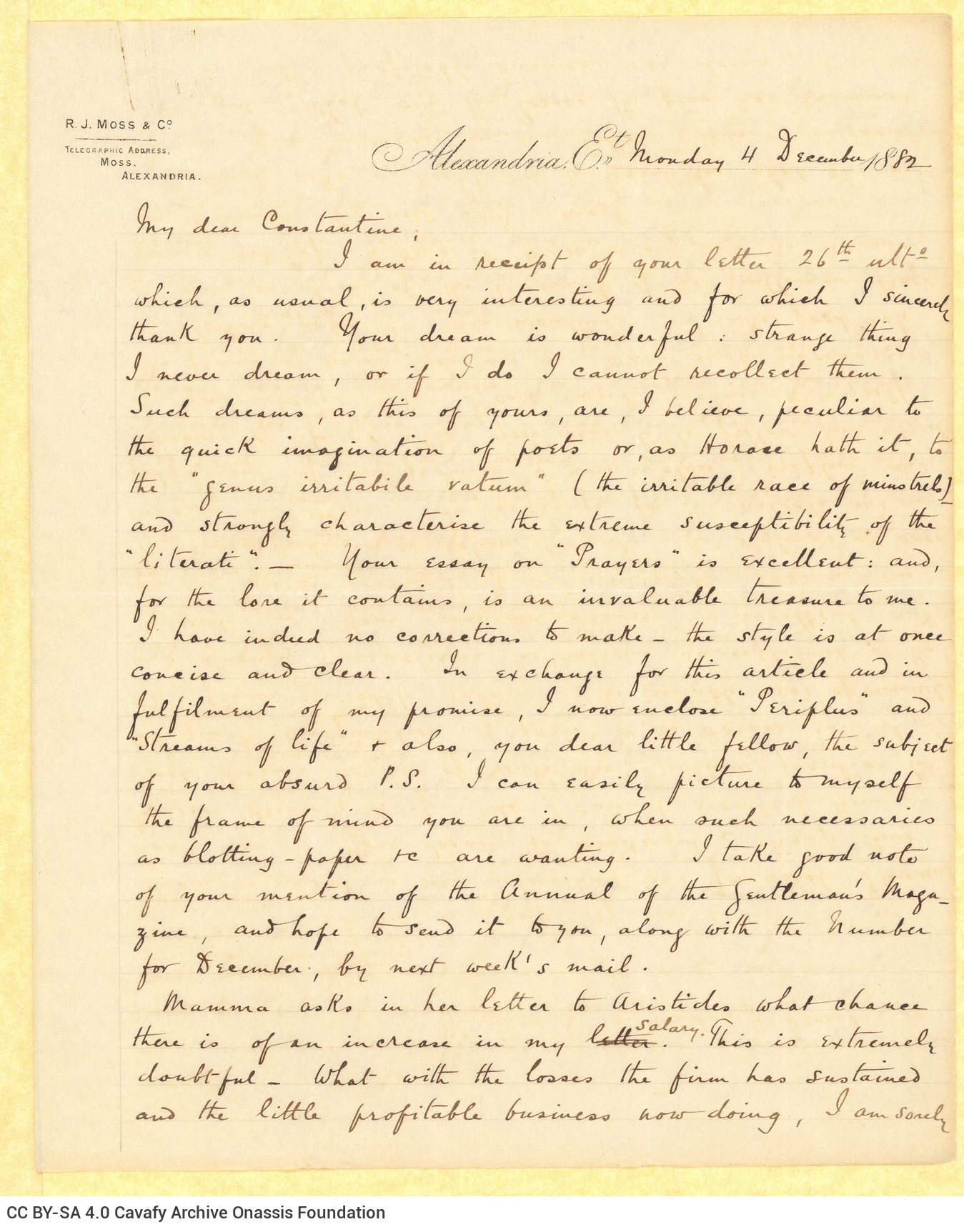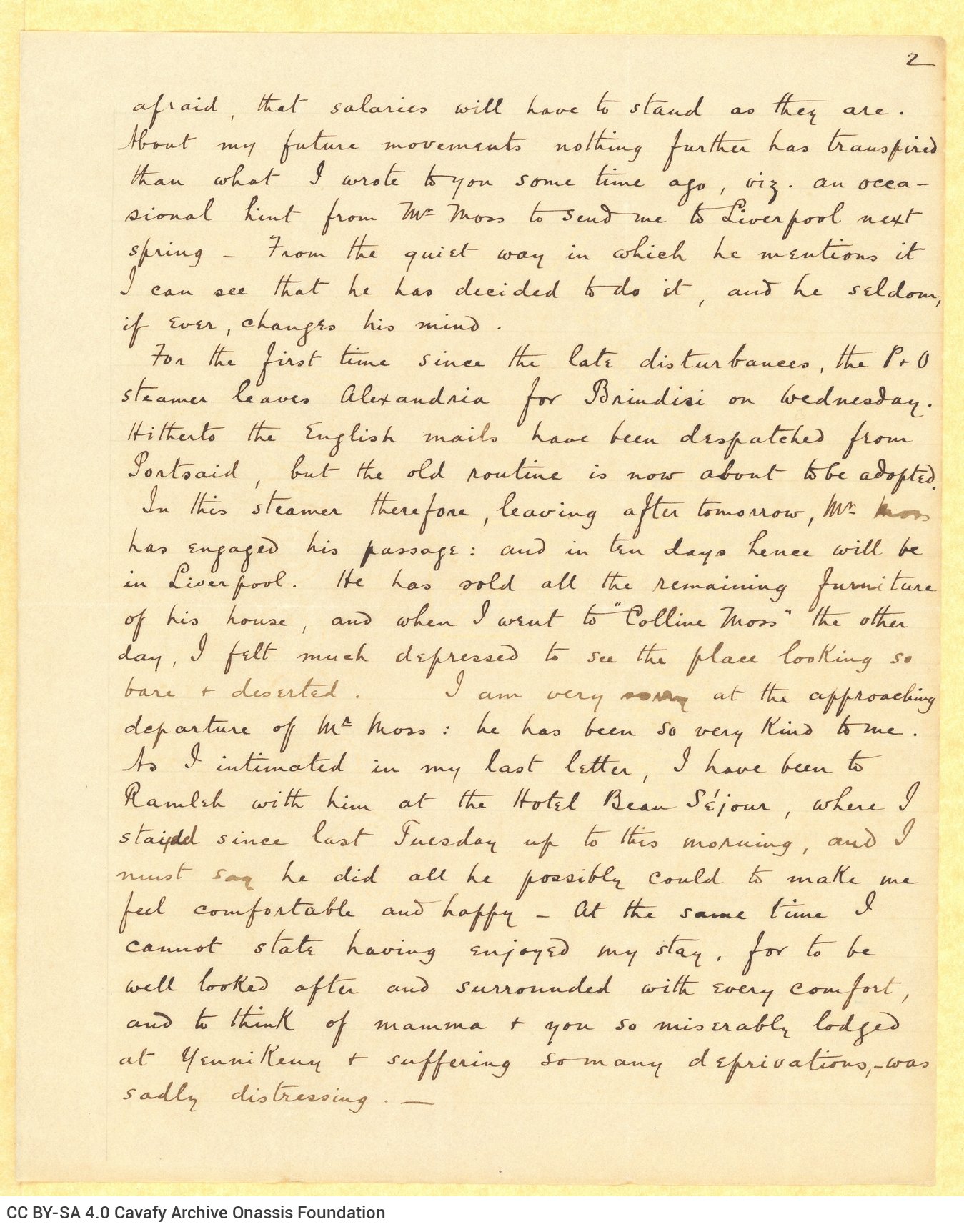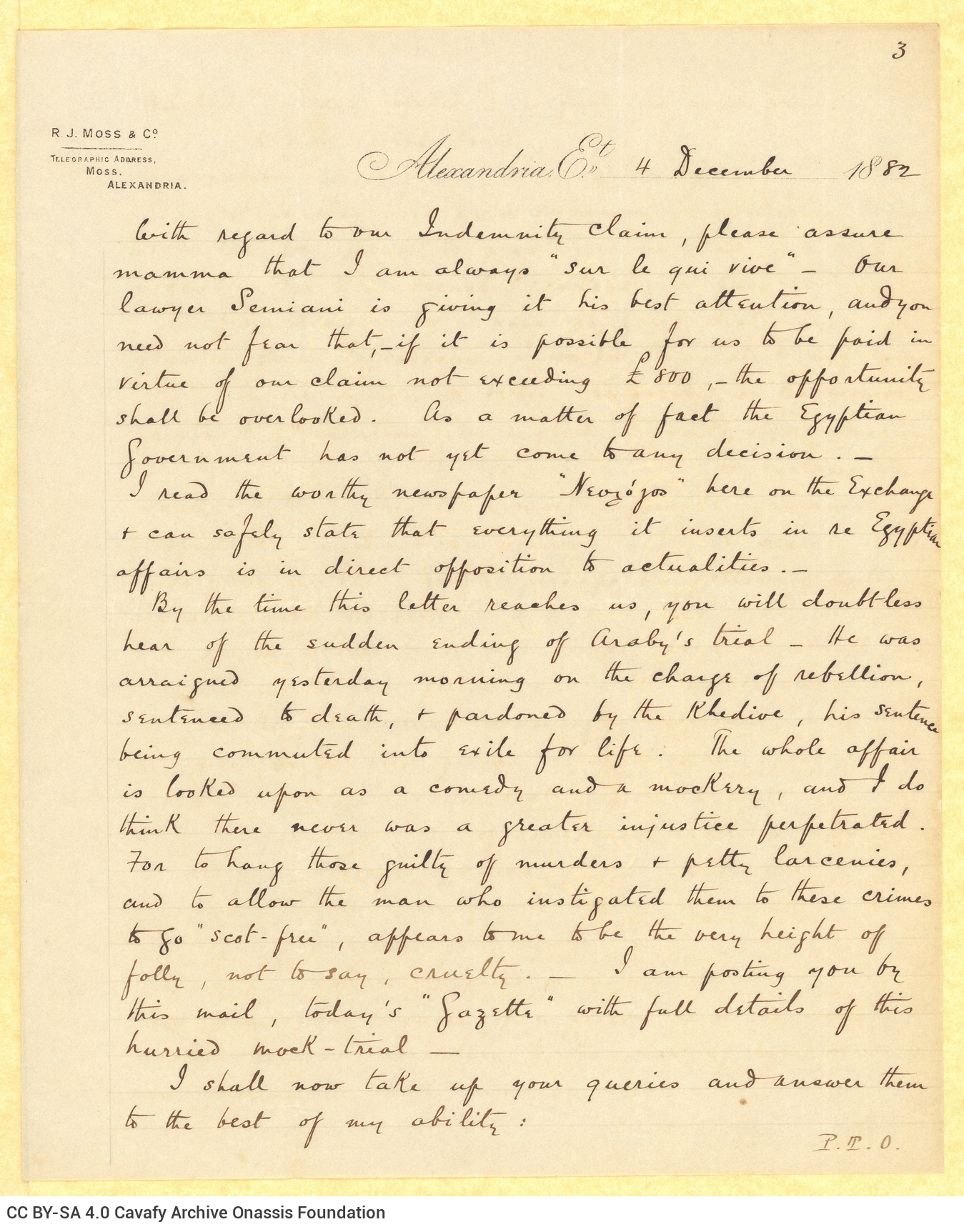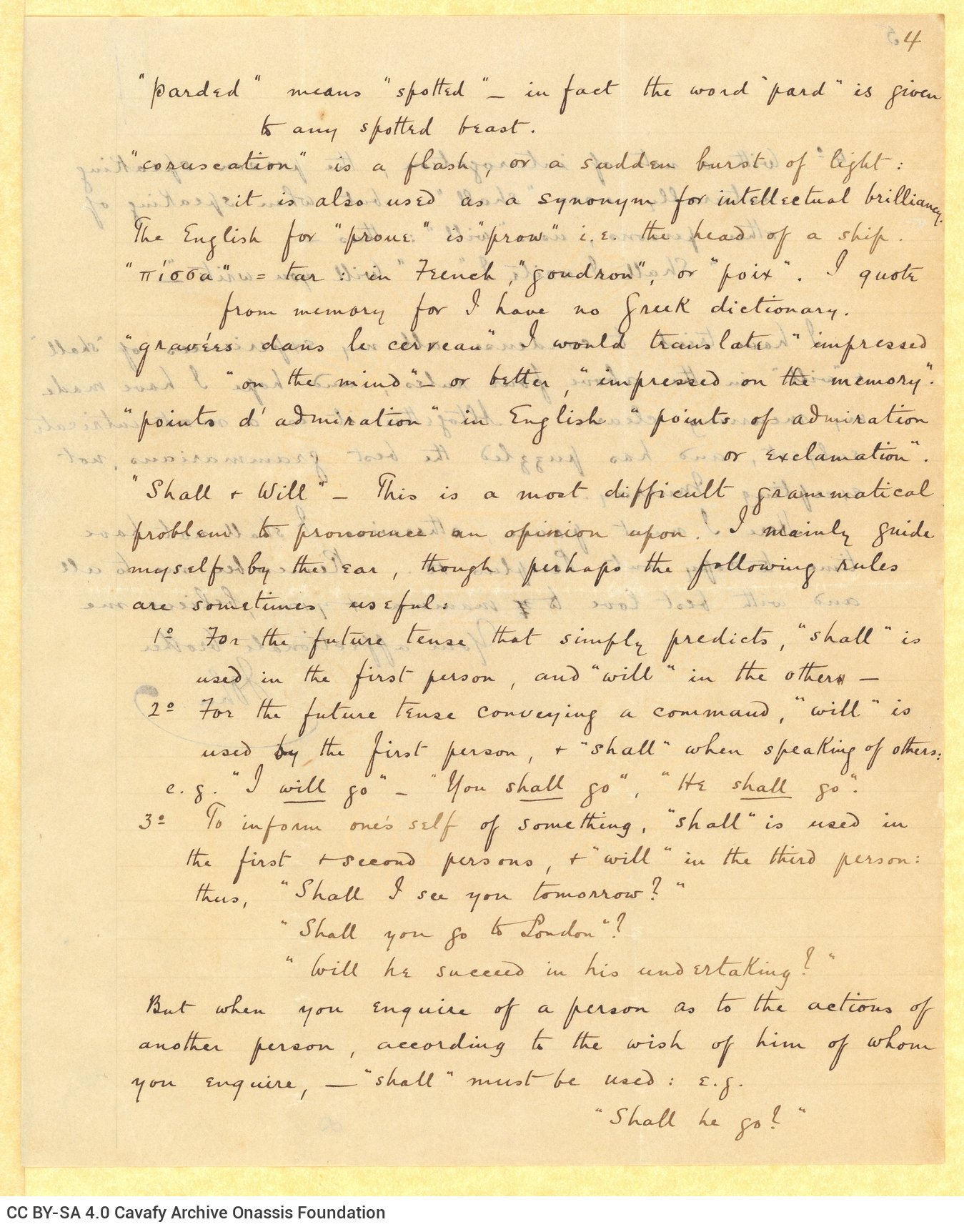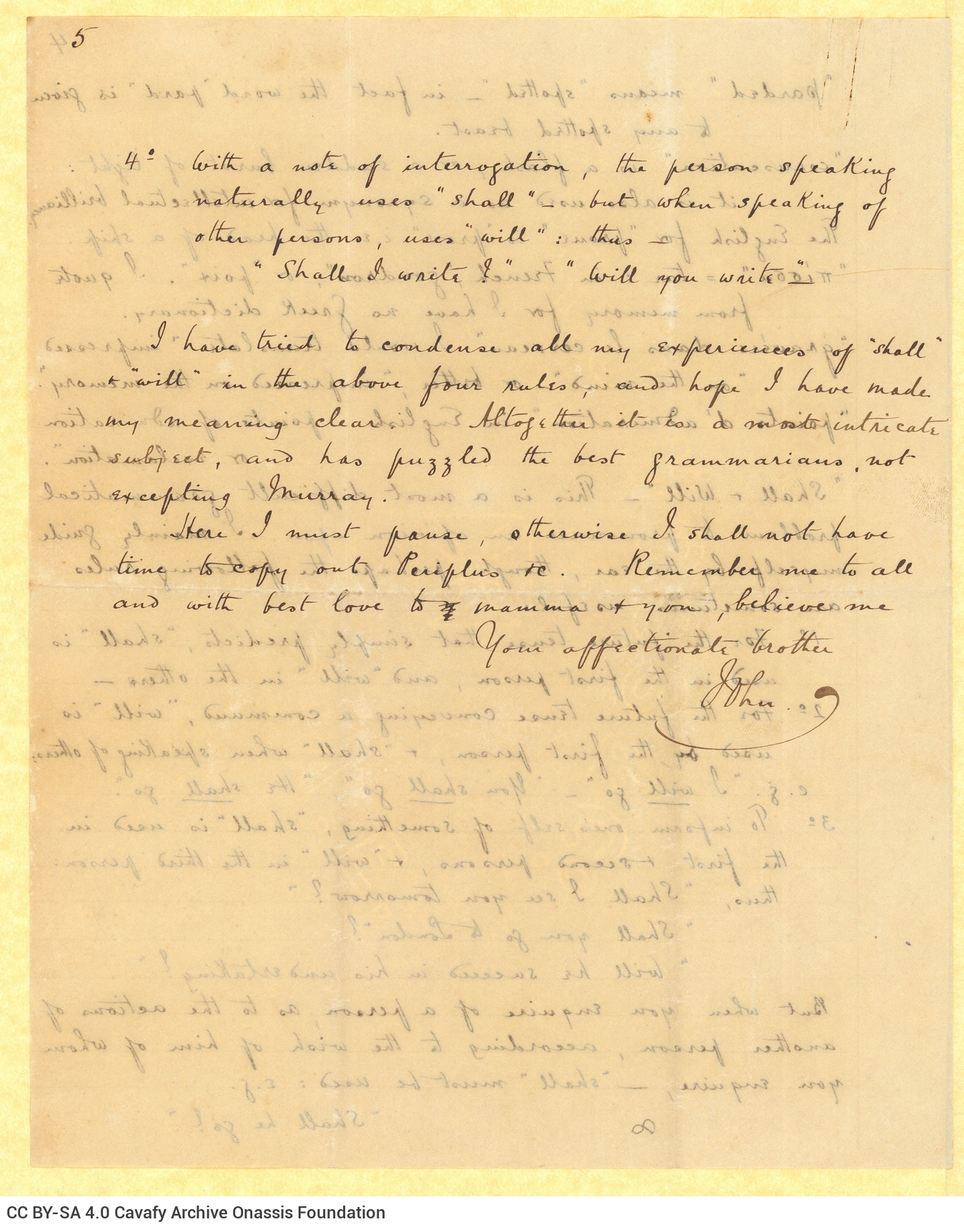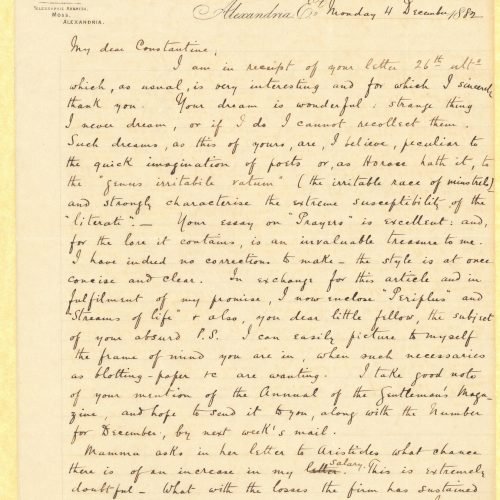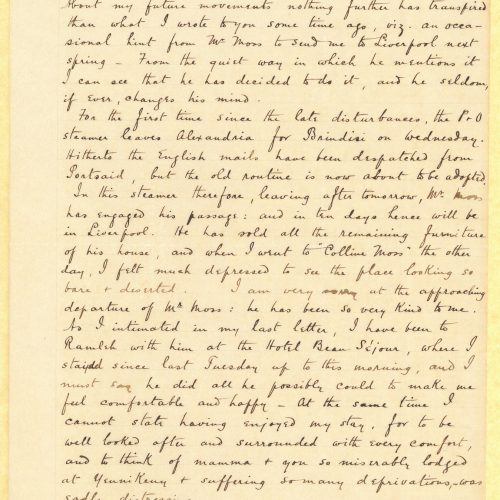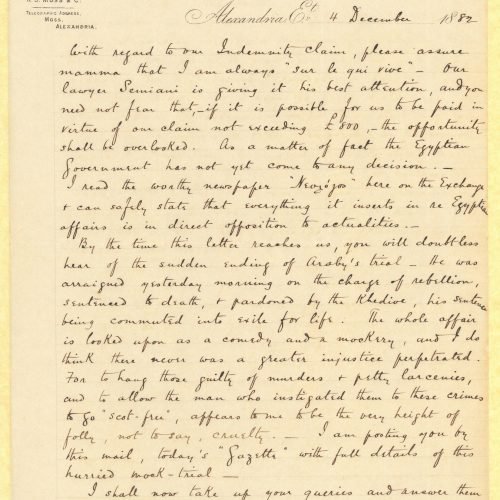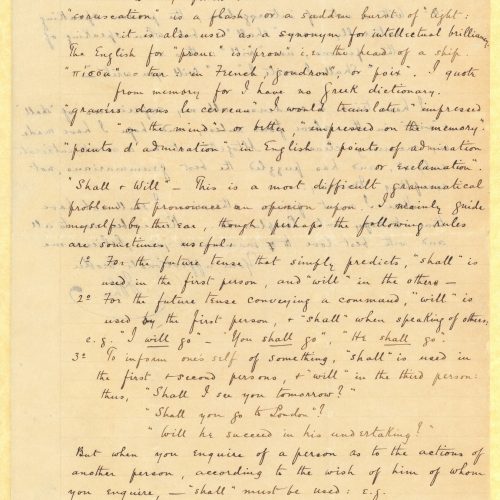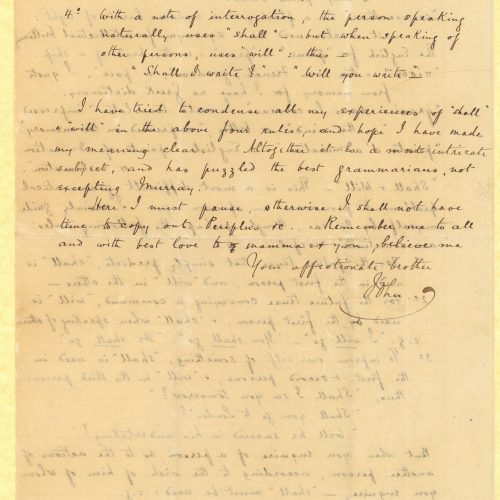υπογράμμιση
υπογράμμιση
πράσινη γραμματοσειρά
κίτρινη γραμματοσειρά
κόκκινη γραμματοσειρά
ΠΕΡΙΓΡΑΦΗ ΨΗΦΙΑΚΟΥ ΑΝΤΙΓΡΑΦΟΥ
ΠΕΔΙΟ ΑΝΑΓΝΩΡΙΣΗΣ
44 x 27,5 εκ.
ΠΕΔΙΟ ΠΛΑΙΣΙΟΥ ΠΑΡΑΓΩΓΗΣ
ΠΕΔΙΟ ΠΕΡΙΕΧΟΜΕΝΟΥ ΚΑΙ ΔΙΑΡΘΡΩΣΗΣ
Χειρόγραφη επιστολή του Τζων Καβάφη προς τον Κ. Π. Καβάφη σε δύο τετρασέλιδα της εταιρείας R. J. Moss & Co., Alexandria. Οι σελίδες 2-5 αριθμημένες. Αναφέρεται στην οικονομική κατάσταση του ίδιου και του αδελφού του, Αριστείδη, στις επαγγελματικές του προοπτικές, καθώς και στο ζήτημα της αποζημίωσης για την καταστροφή της περιουσίας της οικογένειας στην Αλεξάνδρεια. Ενημερώνει για τις πολιτικές εξελίξεις στην Αίγυπτο. Γλωσσικές παρατηρήσεις για τη σωστή χρήση και σημασία συγκεκριμένων λέξεων και φράσεων της αγγλικής γλώσσας.
ΠΕΔΙΟ ΟΡΩΝ ΠΡΟΣΒΑΣΗΣ ΚΑΙ ΧΡΗΣΗΣ
Αγγλική
Γραφή με μελάνι. Υδατόσημο: R. J. Moss & Co Alexandria. Φθορά φυσικού τεκμηρίου: οξειδώσεις.
ΠΕΔΙΟ ΠΑΡΑΤΗΡΗΣΕΩΝ
Η επιμέλεια των μεταγραφών των επιστολών του Ιωάννη Κωνσταντίνου Καβάφη προς τον Κ. Π. Καβάφη πραγματοποιήθηκε για πρώτη φορά από την Κατερίνα Γκίκα και αναρτήθηκε στον επίσημο διαδικτυακό τόπο του Αρχείου Καβάφη.
ΣΗΜΕΙΑ ΠΡΟΣΒΑΣΗΣ
Καβάφης, Ιωάννης Κωνσταντίνος (John), «Επιστολή του John Καβάφη προς τον Κ. Π. Καβάφη» (04.12.1882), Επιστολή, Αρχείο Κ. Π. Καβάφη του Ιδρύματος Ωνάση, GR-OF CA CA-SF02-S01-SS02-F20-SF001-0013 (388), στο: Ψηφιακή Συλλογή του Αρχείου Καβάφη, επιμ. Ίδρυμα Ωνάση, Αθήνα, τελευταία ενημέρωση 01.10.2025: https://doi.org/10.26256/CA-SF02-S01-SS02-F20-SF001-0013.
